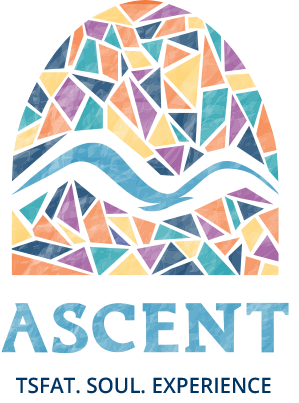KabbalaOnline.org Shelach 5783 The Holy Zohar Insights on the Torah Reading
KabbalaOnline.org Shelach 5783 The Holy Zohar Insights on the Torah Reading
Please Note: The bold text is the direct translation of the classic text source.
The regular text is the explanation of the editor/translator
Transcendent Nothingness
Moses sent spies to determine what supernal spiritual level the Land of Israel is on.

Moses sends spies into the Land with instructions to report about its inhabitants and their cities and the nature of the land. They were also told to bring back some of the fruits. This selection from the Zohar examines the mystical meaning of the question posed to the spies: "Are there trees or not?"
…And how is the Land? Is it fertile or is it lean? Are there trees or not? Strengthen yourselves and take from the fruit of the Land. (Num. 13:19-20)
Rabbi Shimon[bar Yochai] taught: Moses give them a wise hint regarding what to inquire about first, as it is written "Is G‑d among us or not?" (Ex. 17:7)
This is also recounted in an earlier verse, when the people complained that they had no water and Moses extracted water from a rock at Massah and Meribah. Both verses use the expression "im ayin", meaning "or not". In the earlier verse, the question was not whether G‑d was with them or not - after all, "Do I not fill the Heavens and the earth?" (Jeremiah 23:24), or, as the Zohar itself states, "There is no place devoid of Him". (Tikkunei Zohar, Tikkun 57) Rather, the question was what level of G‑dliness was with them at that point. Was it the level indicated by the name Havayah or was it the level called " Ayin"?
Each of the names of G‑d found in the Torah refers to a specific type of activity, as in G‑d's response to Moses: "You wish to know My Name? According to My deeds I am called." (Shemot Rabba 3:6) The name Havayah alludes to G‑d's creation of the world, from the word "mehaveh", meaning "bring into being". (Note that some commentaries derive the name Havayah from "haya", "hoveh", "v'yih'yeh"- signifying past, present and future simultaneously, referring to the transcendence of G‑d. However, in our context the former meaning is intended, as will become clear from the text.) The word " ayin" (meaning transcendent nothingness), however, refers to a level so lofty that it transcends any names.
He [Moses] was telling them: Determine whether this Land is bound to the name Havayah or to Ayin.
Technically, he was telling them to determine whether the Land is bound to the sefira of tiferet (Havayah) or to keter (Ayin). 1 How were they to determine this?
He told them that if they saw that the fruits of the Land are like those of other lands, then "it has trees" - referring to the Tree of Life [which is tiferet.2] but not beyond that.
Note that we translated the phrase "im yesh bah etz im ayin" as "are there trees (in the plural) or not". A more correct translation would be "is there a tree (in the singular) or not? Accordingly, we can understand that it refers to the Tree of Life.
But if you see that the fruits of the Land are unusually larger than anywhere else, then you will know that it is nourished by a primordial holy level, from which its unusual qualities are drawn. This is how you will know if the Land has a Tree [of tiferet] or not[Ayin, the transcendent nothingness of keter]…. This is why he told them to take fruits….
[Zohar III, p. 159a; translation and commentary by Moshe Miller]





Comments
Post a Comment